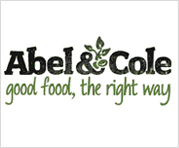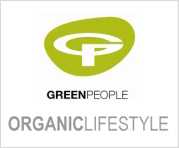Ethical fashion: be the change you want to see
 Kindness – it’s an unassuming, seemingly average noun that’s buried in the middle of the dictionary but has one of the most powerful definitions of any word in the English language.
Kindness – it’s an unassuming, seemingly average noun that’s buried in the middle of the dictionary but has one of the most powerful definitions of any word in the English language.
I’m the sort of person who sets ridiculous goals for myself at the start of every year. Sometimes I only get halfway there, or maybe I try and fail, but I think it’s an important part of making sure I’m on track to be the best kind of person I want to be.
This year for example, fuelled by a little champagne and lot of motivation, I literally wrote down the words ‘be a better person’ on a piece of paper that still sits in my room. And while I don’t think I started as a terribly bad person – I think those words can be applied to anyone, regardless of how great they are to begin with.
So far I think I’m doing OK – although as a friend of mine pointed out, being kind or considerate is not exactly something that can be easily measured.
After attending a recent breakfast hosted by Oxfam that delved into the ethics behind ‘fast-fashion’ post the devastation of the Rana Plaza collapse, I figure it’s probably time to carry over my kindness goal to other facets of my life. And maybe this is where the true ‘measurement’ can come into play.
The ethical fashion leaders who spoke at the breakfast exposed the hidden truths that lay buried beneath the burnt rubble of the Rana Plaza factory. I heard in detail about the shocking truth of the horrible conditions faced by the workers involved – and what’s being done to fight for the social sustainability of fashion since the tragedy.
If, like me, you only knew the basic reported truths behind the Rana Plaza collapse, and you thought the term sweatshop left our society in the 90s along with bad graffiti print – chances are your jaw would have been dropping just as low as mine.
Campaigns such as #hidden and the Three Things Project run by Oxfam aimed to highlight the hidden facts of the case, which saw over 1,000 textile factory workers killed. The campaign exposed the conditions in which these people worked in order satisfy our low-cost, fast-fashion craving culture.
So what exactly is fast-fashion really worth? $20, $30 or 1,000 lives?
The sad truth of it all is that the Rana Plaza devastation in itself worked as the single most effective campaign to target unethical fashion labels, with key players like H&M and Zara being forced to pick up their act for fear of further damage to their reputation, and their sales revenue.
The movement for fashion brands to be more ethical is a strong one, with groups like Cleancut hitting Mercedes Benz Fashion Week in Australia for the first time ever this year, with the launch of their ‘green runway’, and global viral campaigns targeting the increasingly savvy and ethically conscious consumer with messages of awareness.
On the bright side, ethical fashion shouldn’t be a term that scares us. It simply means fashion that has been produced in an ethical way, and there are many labels, both of high end and mid-range value that are doing things right, and not compromising on style.
And as someone who doesn’t get too excited about eco-friendly clothing that sports that ‘made from hemp’ look – I was relieved to find that the fashion labels I have come to love most, do actually make the ethical cut.
And for the brands that are not doing things so well, through the power of social media, we as the new-age, savvy fashion lovers should be able to rally change. Ethical fashion is not only beautiful but made with love, and we need to make it a normal part of our society.
My advice? Stick to the labels you love and know are doing things right, and do your research on the brands that produce the pieces you want to wear before you pull out your credit card. And remember, it’s always been about quality over quantity, so fewer well-thought beautiful pieces may be the best way forward.
So when it comes to being ethical about fashion, I give you permission to take my approach of kindness and apply it to the fashion choices you make. Better yet, why not just apply kindness wherever it’s possible (it’s always possible). I can bet you the world would be a better place if we all thought a little more about the people around us.
Yours in ethical consideration,
K
Feature image sourced from Cue.cc
Women
A wide selection of stylish fashion clothing for all occasions including: dresses, tops, knitwear, skirts, eveningwear, coats, suits, jackets and more. Styles to suit a variety of tastes from classic to vintage and more in between: recycled and upcycled. This is sustainable ethical fashion at it's best.
Women's Ethical ClothingMen
If you're looking for something eco or ethical to wear for dress down friday, a casual weekend or holiday, you'll find it here. Tops, t-shirts, jeans, trousers from mainly fairtrade and organic cotton.
Men's Ethical FashionKids
Green fashion for kids is fun and made mainly from natural fibres including organic cotton and Fairtrade cotton. From baby to early teens, there's something to make all kids happy. Bright colours, animals, fun shapes that children can wear all year round.
Kids Green ClothingAccessories
A treasure trove of accessories from around the world can be found here. A vast selection of jewellery including necklaces, bracelets, rings and earrings to shoes, hats, bags, handbags and scarves. Whatever your style, these items will complete any outfit.
Eco-Friendly Accessories





Comments are closed.